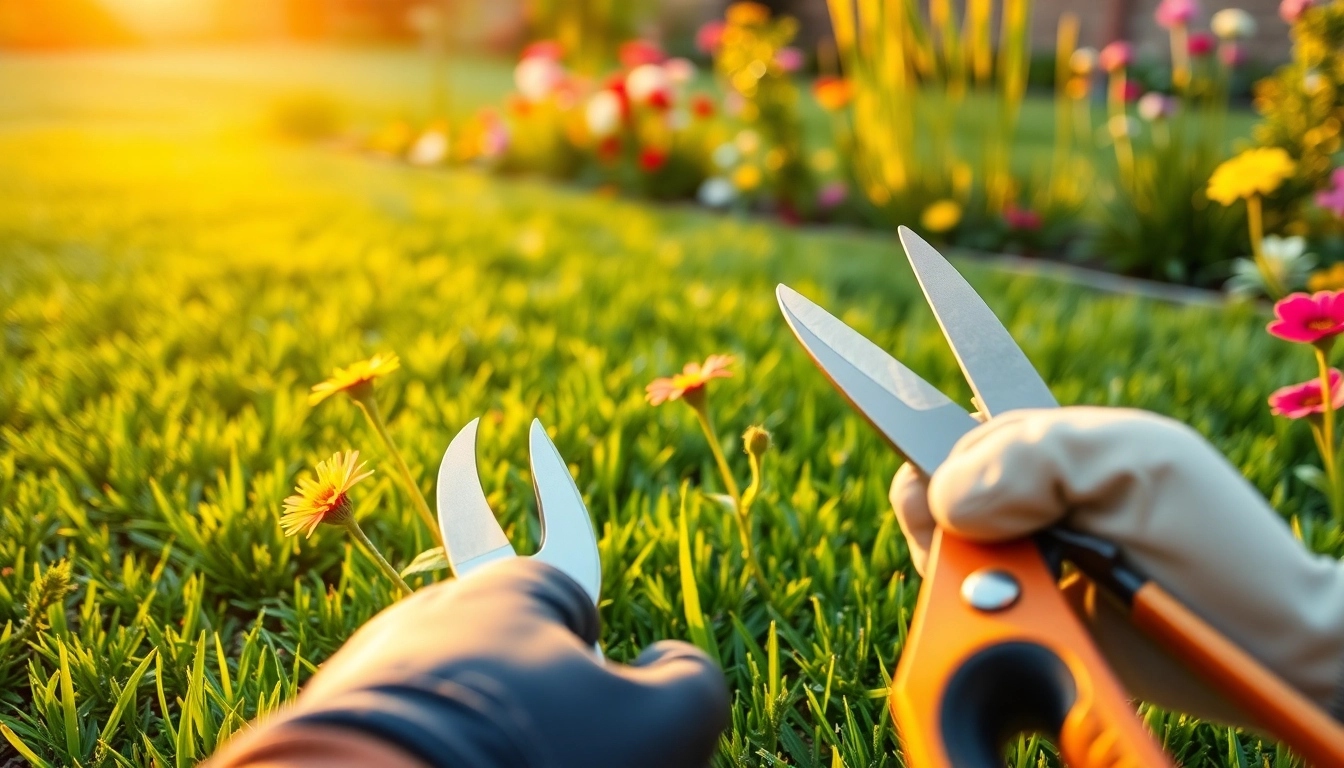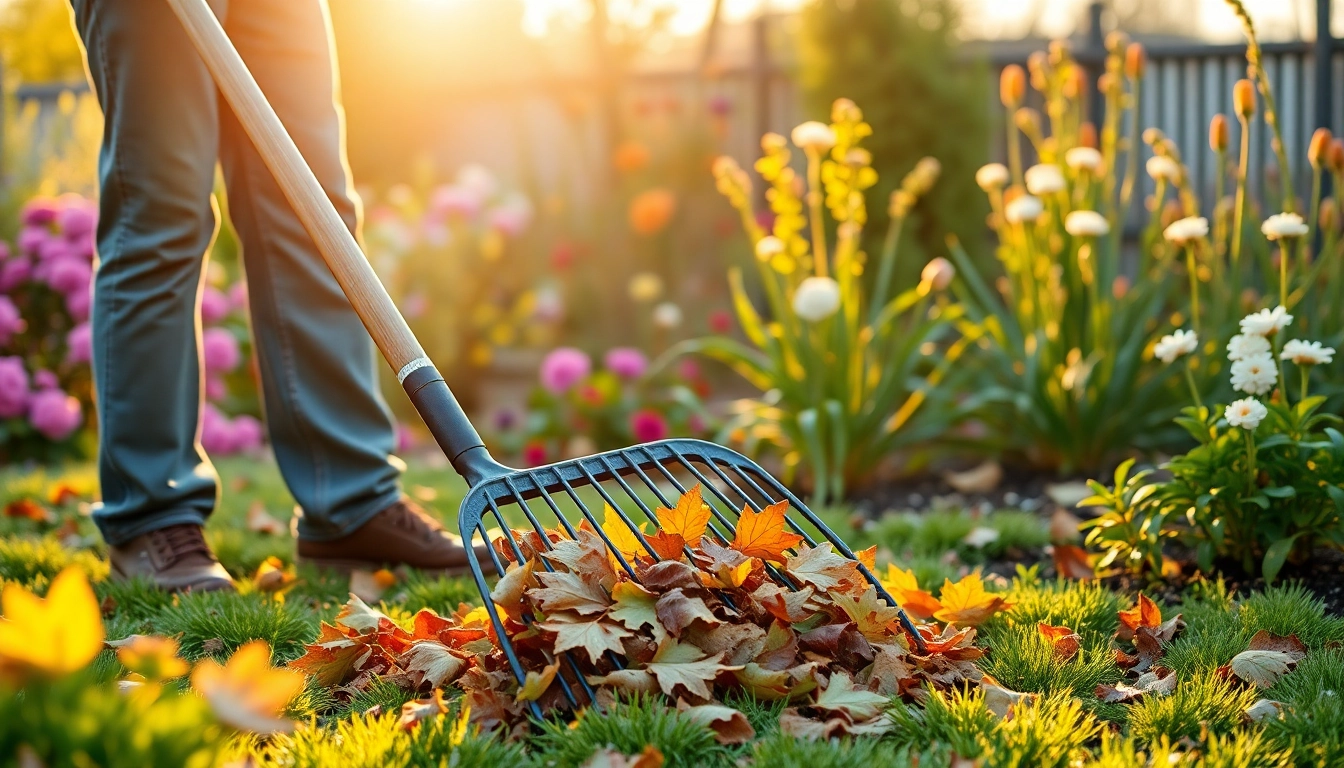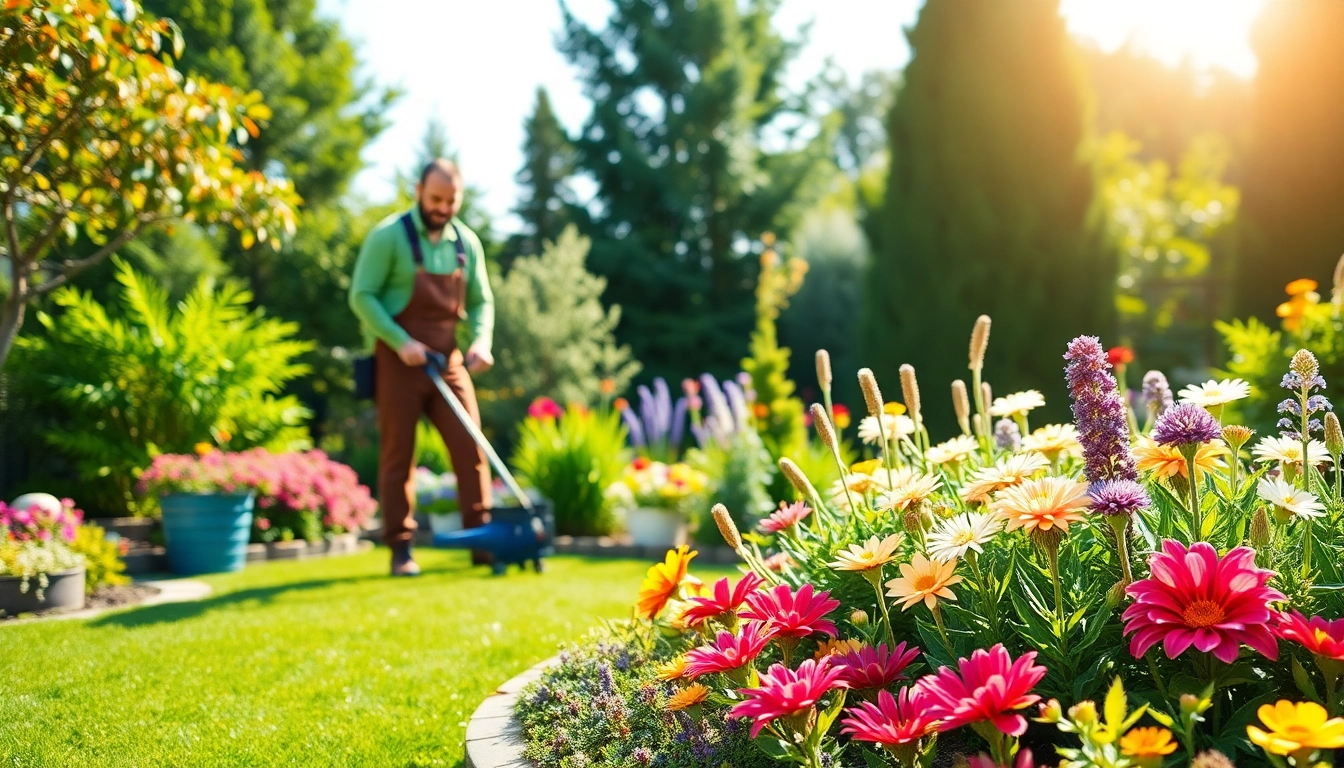Understanding Garden Maintenance Services
What is a Garden Maintenance Service?
A garden maintenance service is a professional service designed to keep residential and commercial gardens in optimal condition. These services can encompass a wide range of activities including lawn care, planting, pruning, fertilizing, and pest control. The primary aim is to enhance the aesthetic appeal of the garden while ensuring the health of plants and grass. Many property owners benefit from the expertise of trained horticulturists and landscapers who possess extensive knowledge of various plant species and the specific care they require. A well-maintained garden can uplift the mood of a space, promote outdoor activities, and even boost property values.
Benefits of Regular Garden Maintenance
Engaging a garden maintenance service offers numerous benefits. Firstly, having a professional handle the maintenance ensures that the garden thrives, catching potential issues early on. Secondly, regular maintenance can help in conserving resources by efficiently utilizing water, fertilizers, and other inputs. Moreover, a professionally maintained garden can enhance the overall visual appeal, thus promoting an inviting atmosphere for residents and guests. Finally, it frees up homeowners from the tedious and time-consuming task of garden upkeep, allowing them more time to enjoy their outdoor space.
Key Services Offered by Garden Maintenance Professionals
Professional garden maintenance encompasses a variety of essential services:
- Lawn Care: This includes mowing, aeration, overseeding, and fertilization to maintain a lush and healthy lawn.
- Pruning and Trimming: Regular pruning helps to shape plants, encourages healthy growth, and prevents overgrowth.
- Pest Control: Professional services include monitoring and managing pests to protect plant health.
- Planting Services: Professionals can provide advice on the best plants suited for a specific climate and design aesthetic.
- Seasonal Clean-up: This entails removing debris and preparing gardens for seasonal changes.
Essential Tools for Optimal Garden Maintenance
Must-Have Tools for Home Gardeners
Home gardeners need a suite of tools to effectively manage their gardens. Some essential tools include:
- Hand Tools: Tools like trowels, pruners, and hand rakes are essential for detailed work in smaller areas.
- Lawn Mower: A good quality mower is critical for keeping grass at the right height.
- Hoses and Watering Tools: Efficient watering tools help manage water usage while ensuring plants meet their hydration needs.
- Garden Fork and Spade: These tools are vital for turning soil and preparing beds for planting.
Safety Gear for Gardening Professionals
When engaging in garden maintenance, safety should be a priority. Professionals should equip themselves with the appropriate safety gear, including:
- Gloves: Protect against cuts and abrasion from tools and plants.
- Eye Protection: Safety glasses should be worn when using tools that throw debris, such as trimmers and blowers.
- Ear Protection: Protective ear gear is important when using loud equipment like lawn mowers.
- Knee Pads: These can help avoid strain or injury when working on the ground.
Tech Innovations in Garden Maintenance
Technology is revolutionizing garden maintenance with tools such as:
- Smart Irrigation Systems: These can monitor soil moisture levels and weather forecasts to optimize watering schedules.
- Lawn Robots: Robotic mowers are designed to handle mowing tasks autonomously with minimal human intervention.
- Plant Health Apps: Utilizing apps to monitor plant health can be effective in pest identification and general care.
- Soil Testing Kits: These kits enable gardeners to analyze soil composition and nutrient content effectively.
Common Challenges in Garden Maintenance
Pest Management Strategies
Pest management is a significant challenge for gardeners. Effective strategies incorporate integrated pest management (IPM) techniques like:
- Regular Monitoring: Frequent checks of plants for signs of pests can intervene before major damage occurs.
- Beneficial Insects: Introducing natural predators such as ladybugs can help reduce pest populations.
- Organic Treatments: Using organic pesticides and natural repellents can manage pest issues without harming beneficial wildlife.
Dealing with Weather-related Issues
Weather can significantly affect garden maintenance, leading to challenges such as drought, excessive rain, or sudden frost. Strategies to mitigate these issues include:
- Proper Drainage: Ensuring your garden has good drainage can prevent waterlogging and root rot.
- Mulching: Applying mulch helps retain soil moisture during dry spells and suppresses weeds.
- Frost Protection: Strategies like row covers can help protect sensitive plants from unexpected frosts.
Managing Weeds Effectively
Weeds are another common adversary in garden maintenance. Effective management techniques include:
- Pre-emergent Herbicides: These prevent weed seeds from germinating.
- Regular Hand Weeding: Periodically removing weeds by hand can help control their spread.
- Cultivation: Lightly tilling the soil can disrupt weed roots, making them easier to control.
Best Practices for DIY Garden Maintenance
Creating a Sustainable Gardening Routine
Developing a sustainable gardening routine involves selecting the right plants, practicing rotation, and maintaining healthy soil. Techniques may include:
- Native Plants: Choosing native plants can require less maintenance and better adapt to local environmental conditions.
- Crop Rotation: This reduces soil nutrient depletion and pest accumulation.
Tools and Techniques for Efficient Maintenance
For effective garden upkeep, seasonal checklists can help maintain tasks. Some tools and techniques include:
- Regular Fertilization: Ensuring plants receive the necessary nutrients at the right times.
- Watering Schedules: Adjusting watering based on seasonal weather can promote healthy growth.
When to Seek Professional Help
There are instances when professional intervention is advisable, such as:
- Severe Pest Infestations: When pest populations become unmanageable, experts have access to effective controls.
- Specialized Knowledge: Certain landscaping designs may require professional knowledge to execute properly.
Measuring the Success of Your Garden Maintenance Efforts
Key Performance Indicators for Your Garden
To measure the success of your garden maintenance, consider assessing various metrics such as:
- Plant Health: Regular evaluations of plant vigor and growth contribute to understanding maintenance effectiveness.
- Weed and Pest Levels: Monitoring levels of these adversaries can provide insights into management effectiveness.
- Soil Health: Testing soil regularly to assess nutrient levels and amendments needed.
Client Testimonials and Case Studies
Gathering testimonials from clients can provide qualitative insights into the benefits derived from garden maintenance services. Case studies can illustrate specific examples of gardens transformed through proper care.
Continuous Improvement in Gardening Practices
In garden maintenance, ongoing improvement is key. Keeping abreast of new practices, tools, and technologies through continuous education and experimentation will help gardeners adapt and thrive in ever-changing environments.



